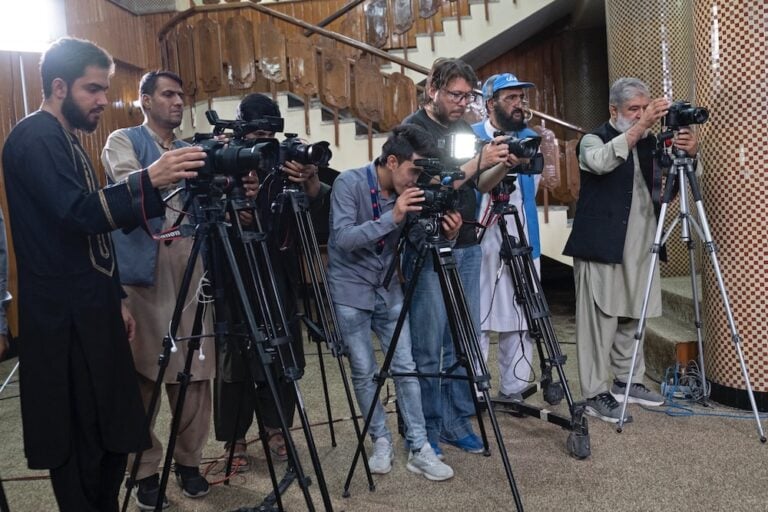(RSF/IFEX) – In a 14 March 2001 letter to Taliban Minister of Information Qadratullah Jamal, RSF protested the closure of the British Broadcasting Corporation (BBC) office in Kabul and the expulsion of the British radio correspondent. RSF sees this decision as a very worrying step backward, which represents an attempt to limit press freedom by […]
(RSF/IFEX) – In a 14 March 2001 letter to Taliban Minister of Information Qadratullah Jamal, RSF protested the closure of the British Broadcasting Corporation (BBC) office in Kabul and the expulsion of the British radio correspondent. RSF sees this decision as a very worrying step backward, which represents an attempt to limit press freedom by depriving the international community and the Afghan population of independent news about the country. RSF asks the minister to reconsider his decision and condemns “all pressure on foreign press correspondents.” Robert Ménard, the organisation’s secretary-general, noted that in a report titled “Taliban and the media”, published in October 2000 (available online at www.rsf.fr), RSF asked the Kabul authorities to “end the restrictions imposed on foreign journalists working in Afghanistan.” Responding to the RSF report, the Taliban said that journalists from the Associated Press, Agence France-Presse, Voice of America and the BBC were working in Afghanistan “without censorship” (see IFEX alerts of 16 October and 27 September 2000).
According to information collected by RSF, on 14 March, the information minister ordered the closure of the BBC office in Kabul and asked the station’s correspondent, Kate Clark, to leave the country within twenty-four hours. This measure was linked to the previous day’s broadcast by the BBC Pashto Service of an interview with Ashraf Ghani, an Afghan intellectual living in the United States. The intellectual described the Taliban as “jahel” (illiterates) and said the destruction of Bamiyan Buddha was “non-Islamic.” The BBC was also accused by the information minister of broadcasting “anti-Afghanistan” news and ignoring “Taliban government viewpoints.”
On 16 December, Taliban militia arrested Saboor Salehzai, the BBC correspondent’s translator in Afghanistan, who was accused of violating the rules regulating the work of Afghans with foreign media. He was released on 20 December (see IFEX alerts of 20 and 19 December 2000).


